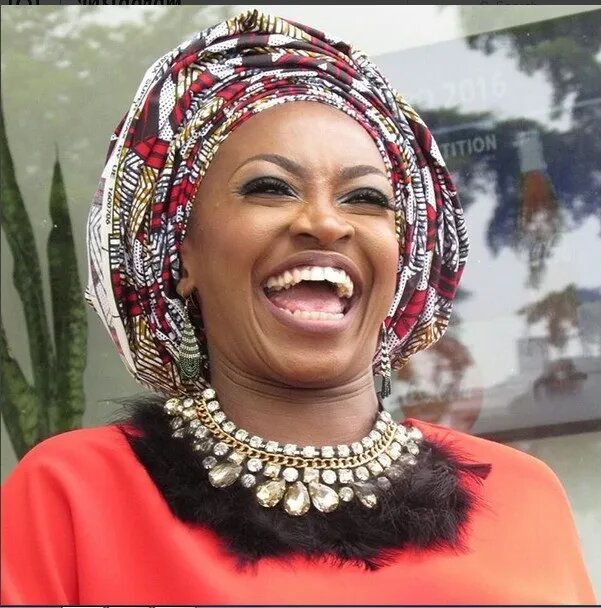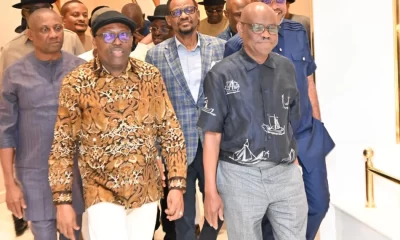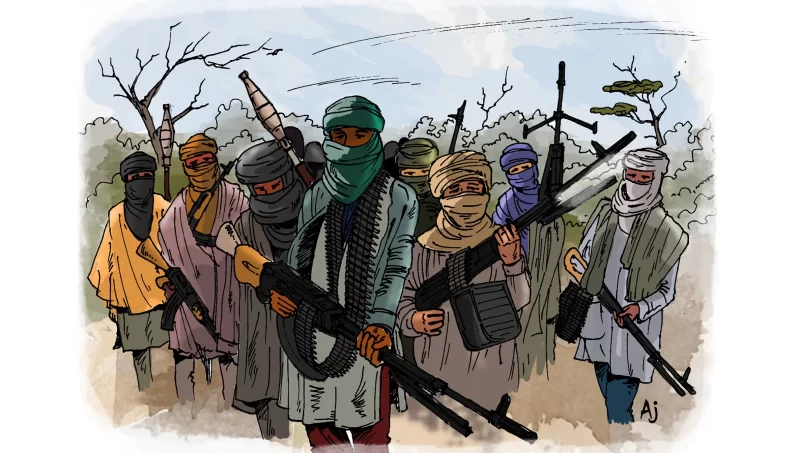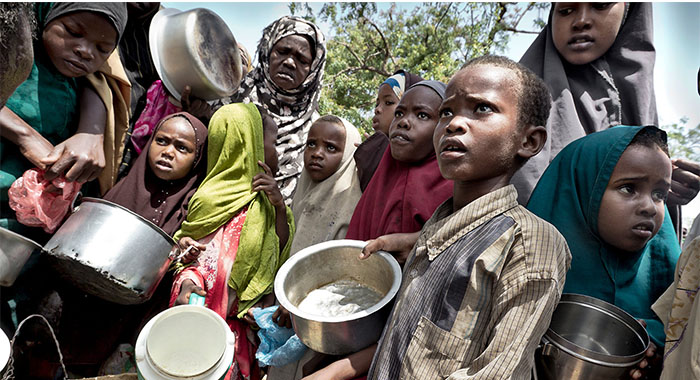Forgotten Dairies
Nigeria: Like A Public-Limited Company Where Few Sit In The Boardroom While Others Toil In The Factory -By Isaac Asabor
In fact, when a nation fails to bridge the gap between the rich and the poor, social unrest, crime, and political instability become inevitable. Already, the signs are visible, and this can be seen in increased crime rates. With limited economic opportunities, many unemployed youths turn to crime, including internet fraud (Yahoo Yahoo), kidnappings, and armed robbery.
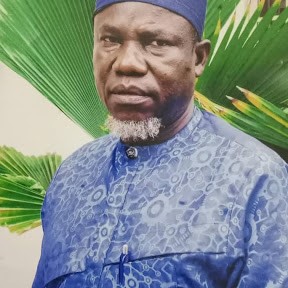
Nigeria has, over the years, evolved into a nation that starkly mirrors the structure of a corporation where a privileged few sit comfortably in the boardroom making high-stakes decisions, while the majority toil endlessly in the factory, struggling to make ends meet. This class differentiation is no longer just an observation, it has become an undeniable reality. The recent high-profile fundraising event for former military president Ibrahim Babangida’s (IBB) book launch, where a handful of individuals raised billions of Naira in mere hours, further exposed the extreme wealth disparity between Nigeria’s elite and its struggling masses. This incident, among many others, paints a clear picture of the socioeconomic imbalance in the country.
Given the foregoing backdrop, it is not a misnomer to opine that a situation that mirrors the Billionaires’ Club and the masses’ struggle prevails in Nigeria.
Without a doubt, Nigeria’s wealth distribution is among the most skewed in the world. The few at the top, consisting of politicians, business moguls, and well-connected elites, continue to amass unimaginable wealth, while the masses grapple with economic hardship, unemployment, and dwindling opportunities. The book launch of IBB provided yet another example of this divide. In a country where millions of people live on less than $2 a day, a select group of elites effortlessly pooled together billions of Naira for a single event.
This fundraising event underscores the entrenched nature of privilege and influence in Nigeria. Those who contributed these vast sums of money are the same individuals and corporations that benefit from government contracts, political connections, and economic policies designed to favor them. Meanwhile, the average Nigerian, who works from dawn to dusk just to afford basic necessities, is left wondering how such wealth is accumulated and circulated within a small circle.
To aptly put it, Nigeria has unarguably become a nation built on two realities. This is as Nigeria’s economic and political structures have created two distinct classes: the privileged and the struggling. The privileged few, comprising top government officials, business tycoons, and their associates, enjoy lavish lifestyles, while the struggling majority faces an increasing cost of living, inadequate social services, and widespread poverty. The disparity manifests in various aspects of daily life:
While the elite fly abroad for medical treatment, ordinary Nigerians are left with underfunded, ill-equipped hospitals. Many die from preventable diseases simply because they cannot afford proper medical care.
In a similar vein, the children of Nigeria’s elite attend expensive private schools locally and abroad, while the masses send their children to public schools plagued by underfunding, overcrowding, and a lack of proper infrastructure.
Also in a similar vein, the wealthy live in highbrow estates with uninterrupted electricity, good roads, and security, while the average Nigerian battles with bad roads, epileptic power supply, and unsafe neighborhoods.
In fact, the elites sponsor political campaigns, dictate government policies, and determine electoral outcomes, while the masses are often left with little or no say in governance.
Without a doubt, IBB’s book launch no doubt symbolized Nigeria’s economic divide. In fact, the billions of Naira raised at IBB’s book launch were a stark reminder of Nigeria’s broken system. It is difficult to justify how a handful of people could effortlessly contribute such a staggering amount while millions of Nigerians cannot afford three square meals a day. This incident was not an isolated case but a recurring pattern in Nigeria, where the rich engage in extravagant displays of wealth while the majority sink deeper into poverty.
The irony is that the same politicians and business leaders who donated billions for the book launch often claim that the government lacks the funds to pay workers a living wage, build roads, improve hospitals, and provide affordable housing. The same individuals who make these grand financial gestures are often linked to controversial government contracts, economic mismanagement, and policies that exacerbate poverty.
In as much as Nigeria’s class divide is not new, it is equally not an exaggeration to opine that it has been in place for decades. The military era, which Babangida himself was a part of, saw the entrenchment of economic policies that favored the few while widening the poverty gap. Privatization policies, government contracts, and oil revenue mismanagement have continually enriched the elite at the expense of the masses.
During Babangida’s regime in the late 1980s and early 1990s, the introduction of Structural Adjustment Programs (SAPs) led to economic downturns that affected the common man. While the elite found ways to profit from the economic shifts, ordinary Nigerians were left with hyperinflation, job losses, and a weakened currency. This set the stage for the deep economic inequalities we witness today.
In fact, one of the biggest contributors to Nigeria’s class divide is systemic corruption. Government officials and their allies continue to enrich themselves through fraudulent schemes, misappropriation of funds, and policies that favor the rich. The political class treats governance as a business venture, using public funds to sustain their luxurious lifestyles while paying lip service to national development.
For example, the oil sector, which accounts for the majority of Nigeria’s revenue, has been riddled with corruption. While a few individuals rake in billions from oil deals, the Niger Delta region, where the oil is extracted, remains underdeveloped, with poverty, pollution, and unemployment rampant. The same applies to the banking sector, where billionaires secure massive loans that they hardly repay, while ordinary Nigerians struggle to get access to small business loans.
Unfortunately, in all these, there are dire consequences that are inherent in class disparity in any given society; without exception to Nigeria.
In fact, when a nation fails to bridge the gap between the rich and the poor, social unrest, crime, and political instability become inevitable. Already, the signs are visible, and this can be seen in increased crime rates. With limited economic opportunities, many unemployed youths turn to crime, including internet fraud (Yahoo Yahoo), kidnappings, and armed robbery.
In a similar vein, many talented and educated Nigerians seek opportunities abroad, fleeing a system that offers little hope for upward mobility. As of the foregoing consequences are not enough, the frustration among the masses is palpable, as seen in the #EndSARS protests and ongoing public discontent over economic hardship.
Given the foregoing backdrop, it is expedient to opine that if Nigeria is to move forward as a nation that urgent steps must be taken to bridge the economic divide. The government must prioritize policies that promote wealth redistribution, create job opportunities, and improve social services. Transparency and accountability must be enforced in government spending, and systemic corruption must be tackled head-on.
Additionally, the culture of excessive wealth accumulation at the expense of national development must be addressed. The private sector also has a role to play in creating sustainable opportunities for the masses through fair wages, corporate social responsibility, and inclusive economic policies.
This view could not have been expressed at any other auspicious time than now as Nigeria has become a country where the elite sit in the boardroom making decisions that serve their interests, while the masses sweat in the factory, toiling without reward. The recent billions raised for IBB’s book launch highlighted this class divide in the most glaring way. If nothing is done to correct this imbalance, the nation risks plunging deeper into social and economic turmoil. It is time to rewrite Nigeria’s story, a story where prosperity is shared, and the masses are no longer spectators in their own country’s wealth distribution.



















